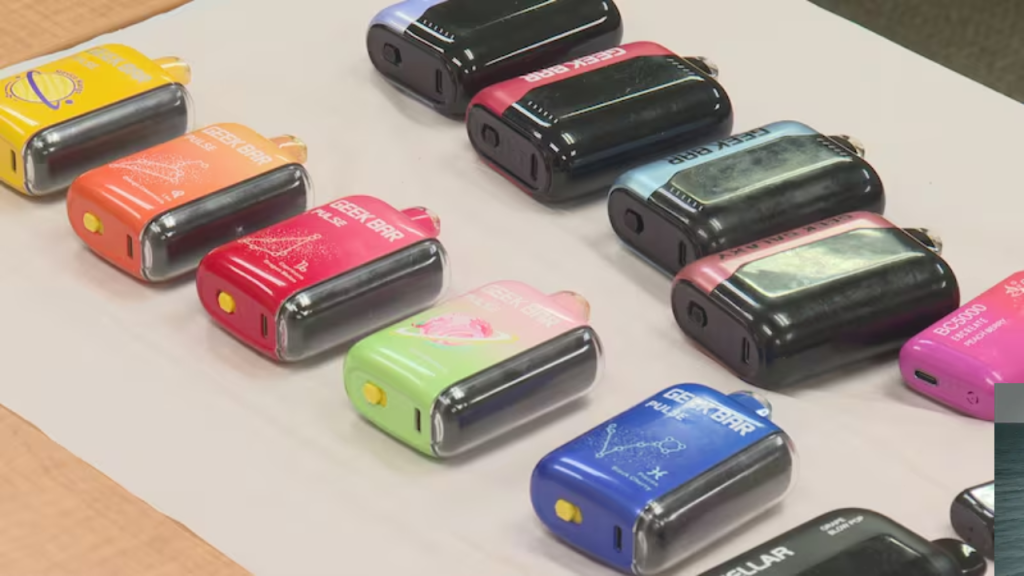
Alabama is grappling with new regulations that will have a direct impact on the state’s school systems, particularly as the state cracks down on vaping among young people. The recently passed House Bill 8 has made it mandatory for school boards to adopt model vaping awareness and prevention programs designed to educate students about the dangers of vaping. This move comes as part of a broader initiative to tackle the surge in teen vaping and to create a healthier learning environment.
New Law Mandates Action from Schools
Under the new law, every local school district in Alabama is required to integrate a prevention program based on a model created by the Alabama State Board of Education. The goal is to reduce vaping among students and address the harmful effects of nicotine addiction, which has increasingly affected teenagers.
Dr. Mike Daria, the superintendent of Tuscaloosa City Schools, one of the state’s largest districts, expressed his concern over the rise in vaping among students. “We have to be proactive and make sure our students understand the health risks associated with vaping,” he said. The district, which serves more than 11,000 students, is planning to expand its existing anti-vaping education programs to ensure that students are well-informed about the consequences of using e-cigarettes.
What Does This Mean for Schools?
With vaping becoming a more significant issue in schools, administrators will now face pressure to enforce these new policies. Schools will need to organize workshops, seminars, and classroom discussions to ensure that all students understand the risks involved. This new legislation aims to educate not just the students but also parents and teachers about the dangers of vaping, with an emphasis on preventing addiction before it starts.
School boards are expected to work closely with local health experts and community organizations to create effective programs that target students in middle and high school. According to the law, schools must integrate these programs by the upcoming academic year. Failure to do so could result in losing certain funding or facing other penalties.

Stricter Regulations on Vape Sales
Alongside the focus on education, Alabama’s new law has also brought about significant changes to the sale of vaping products. The new law restricts the sale of flavored vaping products to anyone under the age of 21 and stipulates that all vaping products sold in the state must be manufactured in the United States. This part of the legislation is aimed at curbing the appeal of flavored products, which have been widely marketed to younger audiences.
Additionally, retailers selling vaping products must now obtain a specific license, and failure to comply with these regulations could result in hefty fines and, in some cases, the revocation of their business license. For example, businesses that fail to adhere to the new regulations could face fines of up to $20,000, highlighting how serious the state is about enforcing these new rules.
Legal Pushback from Retailers
The new vaping law has not been without its controversies. Some store owners and retailers, particularly those who sell vaping products in gas stations and convenience stores, have raised concerns. Many claim that the new regulations will financially burden small businesses and could result in job losses.
In response to the law, several retail organizations have filed a federal lawsuit challenging certain provisions of the law, arguing that it could harm their businesses. They claim that parts of the law are preempted by federal legislation and that the state’s regulations could potentially cause financial difficulties for those who rely on selling vape products.
Challenges and Possible Solutions
As the state of Alabama continues to push forward with its new vaping laws, it will face challenges not only from retailers but also from the reality of changing student behavior. While educators and lawmakers agree on the need to reduce vaping in schools, ensuring that students fully understand the health risks is a long-term process. Success will depend on the collaborative efforts of parents, educators, and local health professionals working together to promote healthier lifestyle choices for young people.
It remains to be seen how schools will incorporate the new prevention programs into their already packed curricula. Districts may face resource challenges as they work to implement the model programs. However, with vaping numbers among teens steadily climbing, Alabama lawmakers argue that the cost of inaction far outweighs the cost of these educational initiatives.
